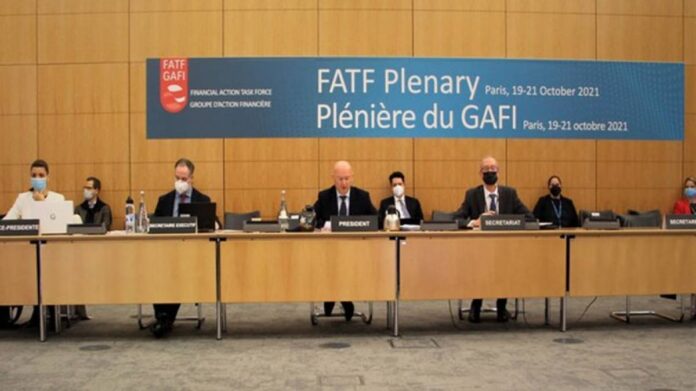The Financial Action Task Force (FATF) finally finds Pakistan compliant on all of 34 actions it had assigned to the country.
After concluding its four day plenary FATF in Berlin, Germany (from June 14-17) the global watchdog announced it will visit Pakistan to review the on-site situation before a final decision at the October plenary as to whether Pakistan will be removed from the list.
The Financial Action Task Force (FATF) is an intergovernmental agency and an active watchdog for money laundering and terrorist financing. It comprises 37 countries and two regional organizations (European Commission and Gulf Cooperation Council), with 39 members in total. The members are chosen according to their GDP size and demonstrated commitment to implementing anti-money laundering and counterterrorist financing laws among other criteria.
During the last plenary (October 2021), Pakistan was found compliant with 26 out of the 27 points originally given to it in June 2018. The points mainly targeted terrorism financing and anti-money laundering measures.
Under the FATF Action Plan, Pakistan has considerably improved its financial laws and practices which are helping it not only to curb money-laundering and terror financing but also in documenting the informal and undocumented economic sectors.
But why was it put on hold since the last plenary session of FATF? Critics argue that Pakistan had already complied with 26 of the 27 points and continued refusal to take it off the grey list meant the Forum was being used as political weapon against Pakistan.
Abid Qayum Suleri, a renowned development specialist wrote in one of his op-eds:
“Editorials carried by some of the influential American papers after the change of guards in Kabul in August 2021 may give us some clues as to why Pakistan could not graduate back to the white list in the last plenary. For instance, Bloomberg in one of its editorials in September 2021 had forcefully urged that the US president should ensure that Pakistan stays on the FATF’s increased monitoring list until it is proved that it did not play any role in financing the Taliban who had come into power in Afghanistan (“through Pakistan’s support”, editors of Bloomberg alleged). There is no denying the fact that even before the Taliban issue cropped up, certain FATF members were misusing the FATF forum and its policy recommendations for achieving their foreign policy objectives. They have their say in (mutual) evaluation of steps taken by the countries as well as in the plenary meetings of both the FATF and the APG.”
China, Pakistan’s long-trusted friend, apparently played a key role in softening member’s position on Pakistan. Recent international media reports have also cited China’s “silent lobbying,” with one Indian news outlet reporting that the plenary session “was expected to opt to remove Pakistan from the list of countries under heightened monitoring.” Major opposition has often come from India and the United States.
But friendly and sympathetic countries such as China have been of the view that removing Pakistan from the FATF grey list “is crucial to rebuilding the Pakistani economy,” according to diplomatic sources in Washington.
No doubt, the FATF Action Plan has served the country as a blessing in disguise because it helped it improve and bring its financial sector including banking at a par with the rest of the world – minimizing the chances of money laundering and terror-financing.




